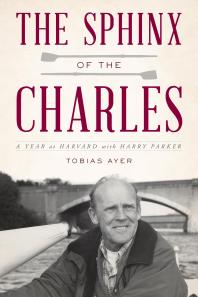Product desciption
The Sphinx Of The Charles A Year At Harvard With Harry Parker Toby Ayer by Toby Ayer 9781493026548, 1493026542 instant download after payment.
Harry Parker was probably the most important figure in American rowing of the past century. His heavyweight crews at Harvard topped the leagues more consistently than any other team (they won the Eastern Sprints regatta, against most of the top college crews, more than three times as often as their nearest rival). From the time they miraculously won the 1963 Harvard-Yale Race at the end of his first year at the helm, his varsity didn’t lose a race for six years, and they didn’t lose to Yale until the Reagan administration. He was the first US National Team coach, and oversaw five Olympic teams. He coached the sons of his great oarsmen from the 60’s and 70’s, and at age 70 was still putting the sons to shame on a bicycle, or running the steps of the Harvard Stadium. He was respected by all, revered and adored by his rowers, and yet no one seemed to know him. The persistent myth was that he hardly said a word, and that his powerful mystique alone made his oarsmen great and their boats go fast. Though a fundamentally compelling figure, Parker’s famous reticence means that few managed to spend much time close to him. Since he made no attempt to explain himself, legends abound: he never got older; he could control the weather; he could walk on water. The Sphinx of the Charles: A Year at Harvard with Harry Parker takes the reader not only inside the Harvard boathouse, but into the coaching launch with Parker. We see how he coached—how many words he actually uttered—as he guided his team through a year of training, and hear about his life in the sport. We see a paradox: Parker remained remarkably constant over the last forty-five years, yet he constantly evolved, changed his style, and used every means at his disposal to build champion crews. The Sphinx of the Charles goes inside the rowing world in a way hasn’t been done before, putting the reader in the passenger seat next to one of the most successful coaches of all time. Parker is a historical icon, part of a tradition that goes back to the beginning of intercollegiate athletics in America. His story needs to be told. The Sphinx of the Charles is fundamentally a chronicle of a year with the Harvard team and a profile of Harry Parker as he was, five years before his death: comfortable in his position as elder and master of the sport, reflective but not nostalgic, aged but nearly impervious to aging. It is driven by Ayer’s own observations of Parker from his seven years of coaching and training at the Harvard boathouse, but especially from one academic year, 2008-9. he shadowed him for a few days every week from September to June, observing practices both on and off the water, and interacting with the team. The present tense of the narrative reflects this immediacy, but also the sense that Parker has endured and continues to endure. And though The Sphinx of the Charles is not a biography in the usual sense, Parker’s life and career were rich and extraordinary and they must be explored.


